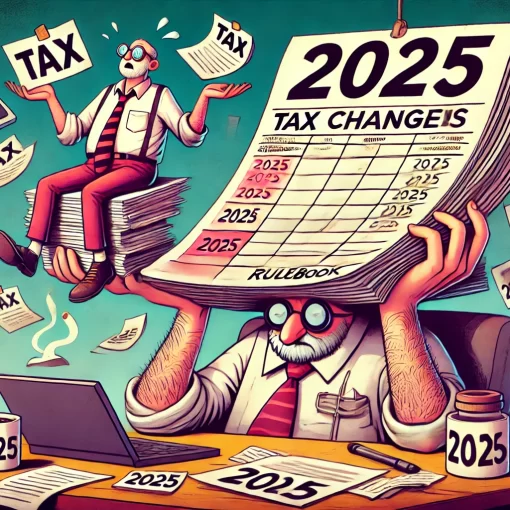Summary of Key VAT Legislation Changes (Effective from January 1, 2025)
Changes in the field of Value Added Tax (VAT) have been adopted to align with European legislation and adapt to domestic needs. Below are the main highlights:
1. Application of Reduced and General VAT Rates
- Beverages with Added Sugar or Sweeteners:
- The reduced VAT rate will no longer apply to the supply of these products and preparations from January 1, 2025.
- Example: Effervescent tablets with less than 5% sugar remain under the reduced VAT rate, while products with higher sugar content move to the general rate.
- Medical Equipment and Aids:
- The reduced VAT rate applies to products commonly used in healthcare or for disabled persons, not just for personal use.
- Restaurant and Catering Services:
- It is now clearly defined that the reduced VAT rate applies to these services as a comprehensive offering of food and supporting services.
- Special Reduced Rate for Firefighting Equipment:
- Remains at 5% and is incorporated into legislation as a permanent regulation.
2. New Obligations for Taxpayers
- VAT Accounting and Deduction Records:
- From July 1, 2025, taxpayers must maintain structured records of calculated and deducted VAT and electronically submit them to the tax authority.
- Invoices and Simplified Invoices:
- Added exceptions and clearer requirements for issuing invoices, especially for small taxpayers and transactions through vending machines.
3. Special Arrangements and Exceptions
- Cash Accounting Scheme:
- The right to deduct VAT arises when the invoice is paid and must be clearly indicated on the invoice.
- VAT Exemption for Goods for Disaster Victims:
- A new systematic exemption for goods intended for victims of natural disasters, with a requirement for monthly reporting to the tax authority.
- Limitation on VAT Refund Surpluses:
- The transfer of VAT surpluses is time-limited to five years, applicable to surpluses from 2025 onwards.
4. Other Changes
- Place of Taxation for Online Services:
- Services such as webinars are taxed based on the recipient’s place of establishment or permanent residence.
- Changes in Thresholds for Determining the Place of Supply of Goods:
- The total value of sales of goods and services is considered for the VAT threshold in another EU member state.
Effective Date
- Most changes take effect on January 1, 2025, while provisions related to records and other adjustments will be gradually implemented until 2026.
The changes were introduced to enhance transparency, align with EU regulations, and reduce administrative burdens for taxpayers. More detailed guidelines will be available on the FURS website.

